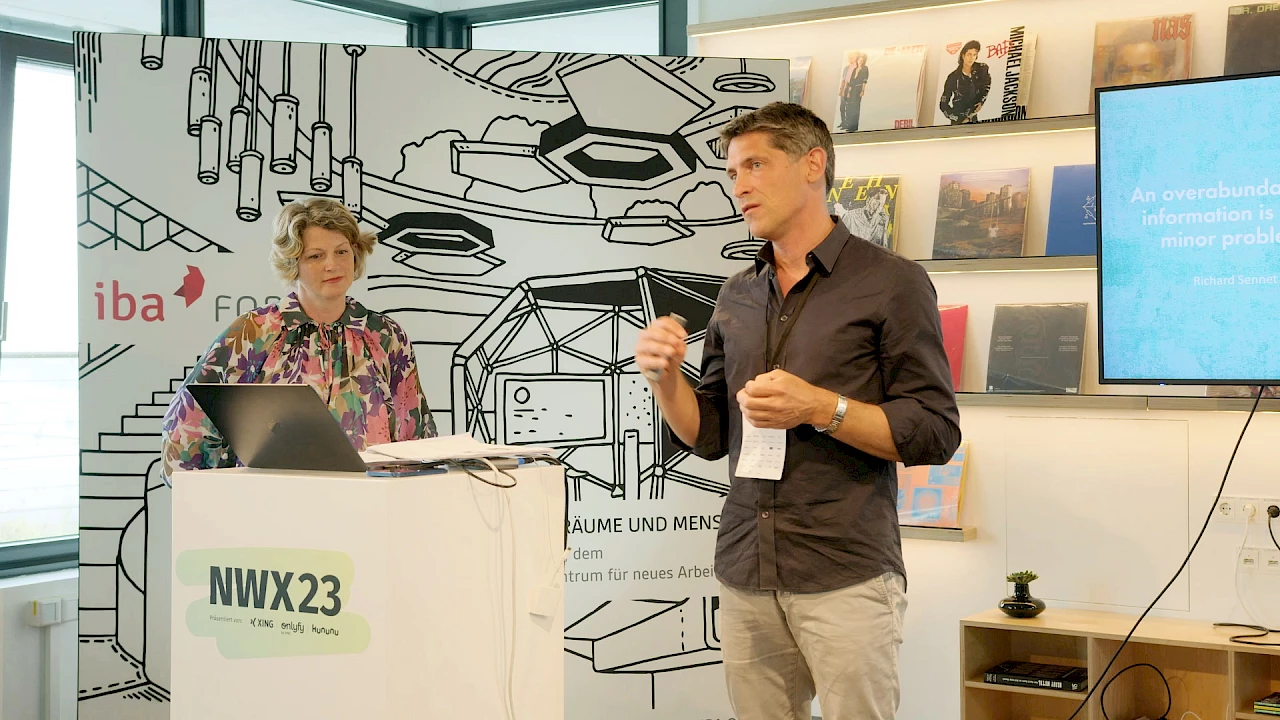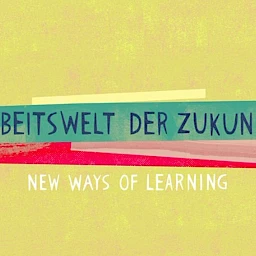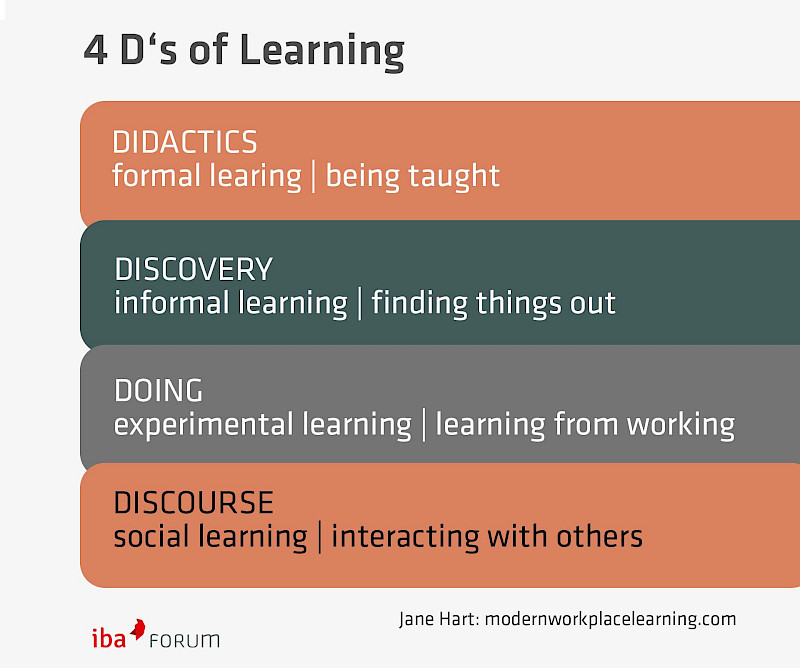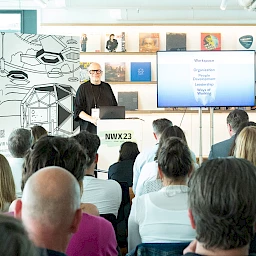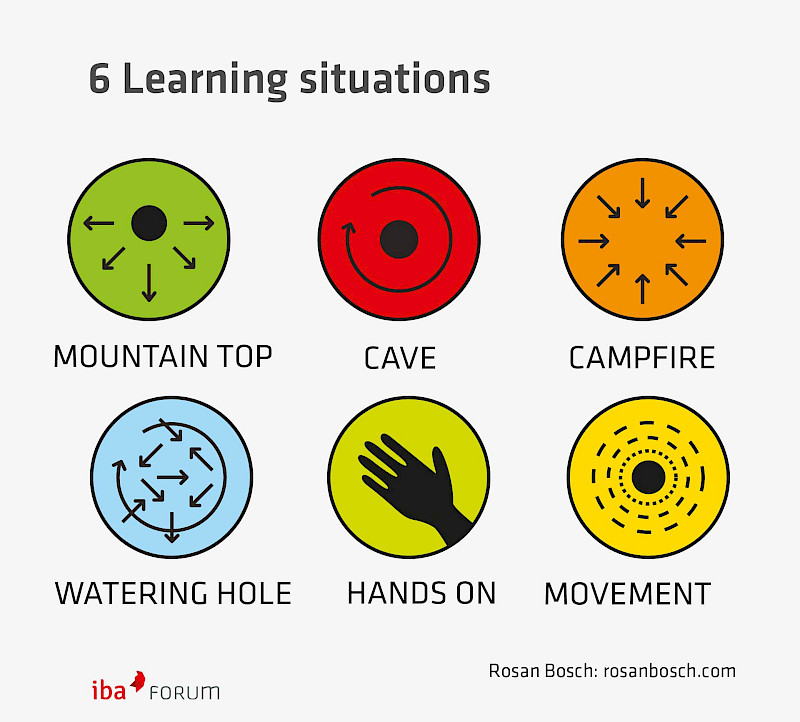New technological developments are spreading ever faster and influencing many areas of work and daily life. That also applies to corporate learning and the effects of new technologies such as artificial intelligence (AI) on the world of work. The opportunities offered by this development were the focus of a joint lecture by Birgit Gebhardt, a trend expert and author of the New Work Order studies, and Dr Felix Dibelka, the CEO of NeuKurs GmbH, at this year’s New Work Experience (NWX23) in Hamburg.
“The process of learning, unlearning and relearning is one of the strongest drivers that will enable us to successfully participate on the labour market in the future and successfully use new tools that will probably be 90 % AI-based,” explains Dibelka. Birgit Gebhardt also believes that the interplay of natural and artificial intelligence (AI) will play an important role in the future. Although AI is less transparent and less subject to regulation, the goal is to ensure that both types of intelligence can cooperate in order to make work processes more efficient. Against this background, advanced training and reskilling — the further development of existing skills — could become a permanent challenge for companies and employees.
AI is a window to knowledge
“Today not only information about data but also knowledge that AI initially prepares for us and then controls is universally available,” says Gebhardt. She explains that the actual skill now consists of organizing this information, evaluating it and putting it into a context. According to Gebhardt, AI can serve as a window and a filter in the search for relevant and high-quality information.
Artificial intelligence (AI) will thus become a constant companion that collects and provides information, she concludes. Whether it’s a question of one’s job, health, family or favourite coffee, the AI knows the user’s personality and ambitions, and thus it could help to filter the mass of available information and prepare it in an optimized and personalized form for learning. The development of specific AI systems into which knowledge is fed in a targeted way and then effectively passed on is also conceivable. This could enable efficient methods for disseminating knowledge and providing targeted advanced training in various areas and sectors. However, this will not replace human interaction and interpretation — that message is clear.
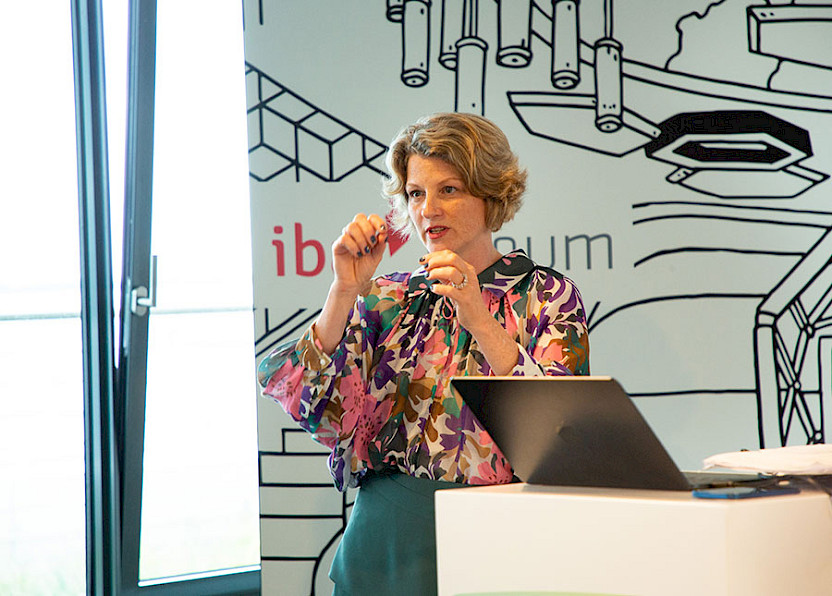
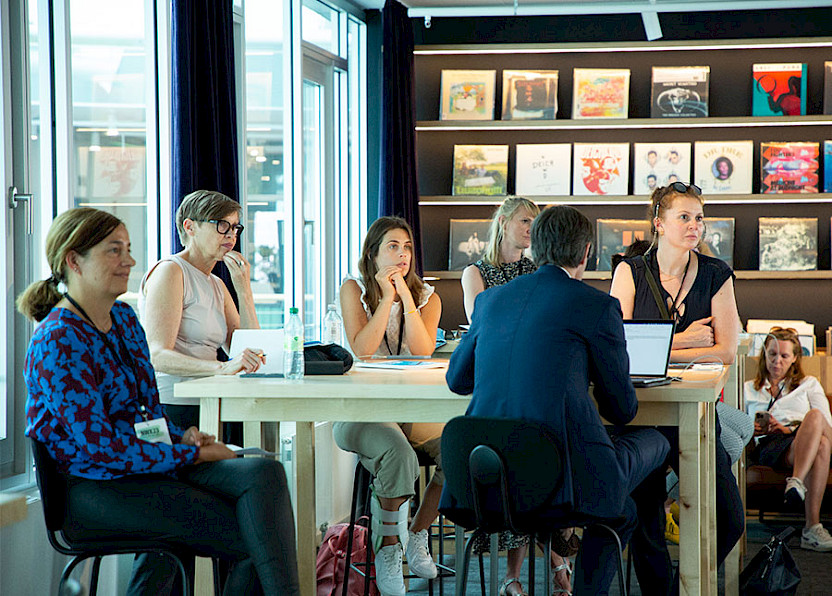
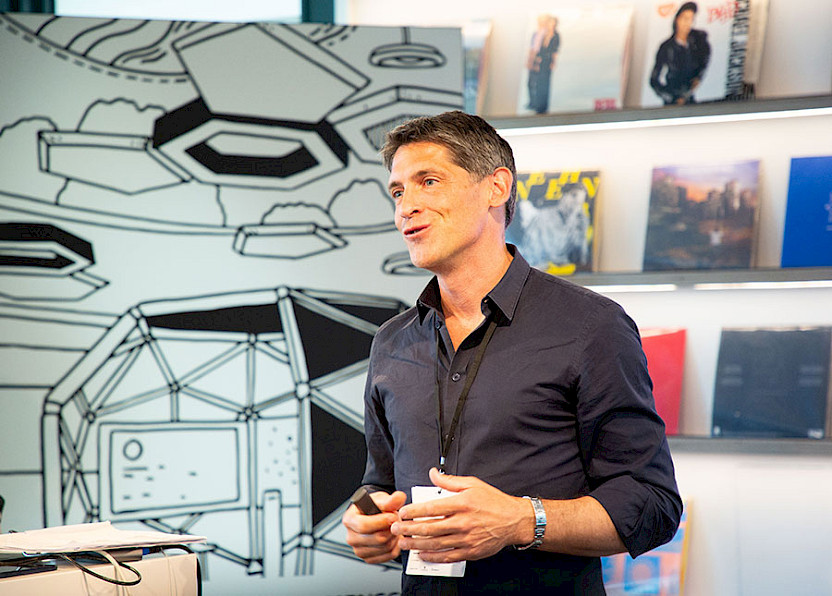
Learning also means interaction
Today many companies are still using a purely instructive approach to learning. In other words, knowledge is conveyed in one direction with little or no genuine back-and-forth communication. With this approach, information is indeed conveyed to the employee, but more complex structures of relearning and understanding cannot be represented.
In this connection, Gebhardt and Dibelka pointed out the four dimensions of learning as defined by the British e‑learning specialist Jane Hart: discovery, discourse, doing and didactics. In line with this concept, employers should not rely only on didactics. Instead, they should also offer their employees the opportunity to learn interactively: through discovery by independently acquiring new knowledge or refining what they have already learned, through the application of knowledge in practice, and through discourse that promotes communication and the discussion of ideas.
In any case, no real innovation is possible without the dimension of interaction, because the AI is also capable of creatively combining information. Dibelka also emphasized the important role played by the emotional, social and structural dimensions of learning. Why do we learn something? How can we regard learning as part of our work? Where do we have opportunities to learn? Companies should recognize the significance of learning as part of work. They should also create content and spaces for learning. In his experience, says Dibelka, “in order to make sure that information becomes something I can work with, I need my team and a space for learning.”
At the end of her talk, Gebhardt explained what these spaces for learning could look like. When we design physical spaces for learning, it’s important to move away from large “auditoriums” that support instructive learning, she said. Smaller places that are flexible could be used to achieve specific learning goals in a targeted way. She presented six archetypical settings for design based on the ideas of Rosan Bosch. In this model, the design of the individual rooms is based on the learning situation.
For example, a “campfire” setting — a gathering of all the learners into a circle of equals — supports group-based learning through dialogue and interaction. By contrast, the “watering hole” offers a place for spontaneous conversations and learning things “in passing”. The familiar physical rooms are now being joined by virtual learning spaces. Especially in the area of gaming and in virtual conferences, there is still lots of potential for the integration of learning situations. In the future, mixed realities such as simulations in the metaverse could help to make hypothetical scenarios visually understandable. → These models are discussed in greater depth by Gebhardt and Dibelka in the explanatory film Arbeitswelt der Zukunft — New ways of learning (The future world of work — New ways of learning).
No matter where we are — working from home, in the metaverse, on the road or at the office — in the future there will be more and more blended learning concepts that optimally adapt the environment and individual learning goals to one another.



